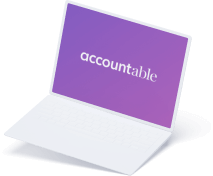
Self-employed in a company? Optimise your salary with meal vouchers!
Read in 4 minutes
Meal vouchers are hugely popular in Belgium. About half of Belgian workers enjoy this extra-legal benefit. The reason behind this phenomenon? Meal vouchers are advantageous both for the employer and the employee.
Are you self-employed in a company? Then it’s possible to give yourself meal vouchers, thereby optimising your own salary. And because when you have your own company you’re both employer and employee, you get to enjoy this tax benefit twice!
Meal vouchers for the self-employed in a company
A meal voucher amounts to a maximum of €8.00 per day worked. Of this, the employer contributes a maximum of €6.91, and the worker themself pays a minimum of €1.09. The value of each meal voucher may also be lower, but to optimise your salary, it makes sense to choose the maximum amount.
Do you have one or more employees in your business? Then you’re obliged to give meal vouchers to your staff too. Also, the value of your employees’ meal vouchers cannot be lower than those you give yourself.
However, if you’re smart about it, the principle of meal vouchers can be advantageous for both you and your employees. After all, meal vouchers cost you much less than a salary increase of the same amount. They’re not part of the basic salary, and they’re not granted for days not worked (e.g. due to illness or vacation). It’s therefore a nice fringe benefit that motivates and rewards your employees and reduces absenteeism.
You can arrange all the practical matters relating to meal vouchers with one of the officially recognised issuing companies, such as Sodexo, Edenred and Monizze.
These organisations help you set up your meal voucher programme, including the initial administration, such as drawing up an individual agreement for meal vouchers in your company. And of course, these meal vouchers should also appear monthly on the pay slip. Once everything is up and running smoothly, they simply send you a monthly invoice and add the meal vouchers to your meal voucher account.
No meal vouchers for self-employed sole traders
Are you self-employed in a sole proprietorship? Then we have some bad news. It’s not possible for you to take advantage of the meal voucher system. You can only grant yourself meal vouchers if you are self-employed in a company. This is because sole traders don’t pay themselves an official salary.
Do you want to optimise your taxes as a sole trader? Then take a look at Deductibles. There, we give you lots of other tips and tricks.
The tax advantages of meal vouchers
A meal voucher of €8.00 per day worked, with an average of 20 working days per month, quickly amounts to €160.00 in meal vouchers per month.
👉 Of this, the employer pays a maximum of €6.91 per cheque, or €138.20 for 20 working days.
👉 The employee pays a minimum of €1.09 per meal voucher, or €21.80 for 20 working days.
Tax benefit for the employee
As an employee of your company, you gain a net benefit of €138.20. This is net purchasing power that you can use for purchasing food items, without having to pay any social contributions or taxes on it.
This means that, as a salaried company director, purchasing meal vouchers allows you to receive €138.20 net extra per month, tax-free from your company.
Tax benefit for the employer
Not only do you receive the meal vouchers as an employee, it’s you as the company director who pays your salary and meal vouchers.
There are no employer contributions to be paid on this €138.20. And you don’t have to take into account social security contributions and personal income tax for this net amount either on the pay slip. That’s a huge difference compared to a pay rise. If you want to increase your own salary or that of an employee by the same amount, it will quickly cost you up to three times as much as an employer.
The only additional cost is the fee from the issuing company. These costs depend on the provider and service offered, but they’re negligible compared to the tax benefits of meal vouchers. On top of this, you also receive an invoice for these admin costs, which you simply enter as an expense.
Does the meal voucher system still make sense?
There’s been a lot of debate about whether or not meal vouchers still make sense in this day and age. They were introduced decades ago during a period of crisis to make sure people at least had access to food. Even today, they can only be used for food, but their practical use is now more of an afterthought, and they’re seen mainly as an extra-legal benefit.
Since electronic meal vouchers were introduced, it’s much easier to spend them. You simply carry an extra payment card that’s topped up with the appropriate amount each month. There’s no more calculating or fumbling with paper vouchers at the checkout like in the olden days. Now, the exact amount is simply deducted, just like with any bank card.
When you see how popular and well-established meal vouchers are in Belgium, it seems unlikely they’ll be replaced with extra net pay any time soon. Tax reforms are not exactly straightforward in Belgium. And as long as the tax burden on labour remains high, any form of tax optimisation is welcome.
As a company director, this is a small perk you can give yourself and any employees with a minimum of effort. Free from employer contributions, and free from social security contributions and personal income tax. The perk may be small, but it’s a fiscally attractive one!
If you still have questions about this topic, reach out to Accountable’s tax coaches✨, they’ll be happy to help. Are you self-employed as a sole trader and also want to optimise your income for tax purposes? Then take a look at deductibles.be. There, you’ll find lots of tips to make sure you don’t overlook any expenses.
Did you find what you were looking for?
Happy to hear!
Stay in the know! Leave your email to get notified about updates and our latest tips for freelancers like you.
We’re sorry to hear that.
Can you specify why this article wasn’t helpful for you?
Thank you for your response. 💜
We value your feedback and will use it to optimise our content.










